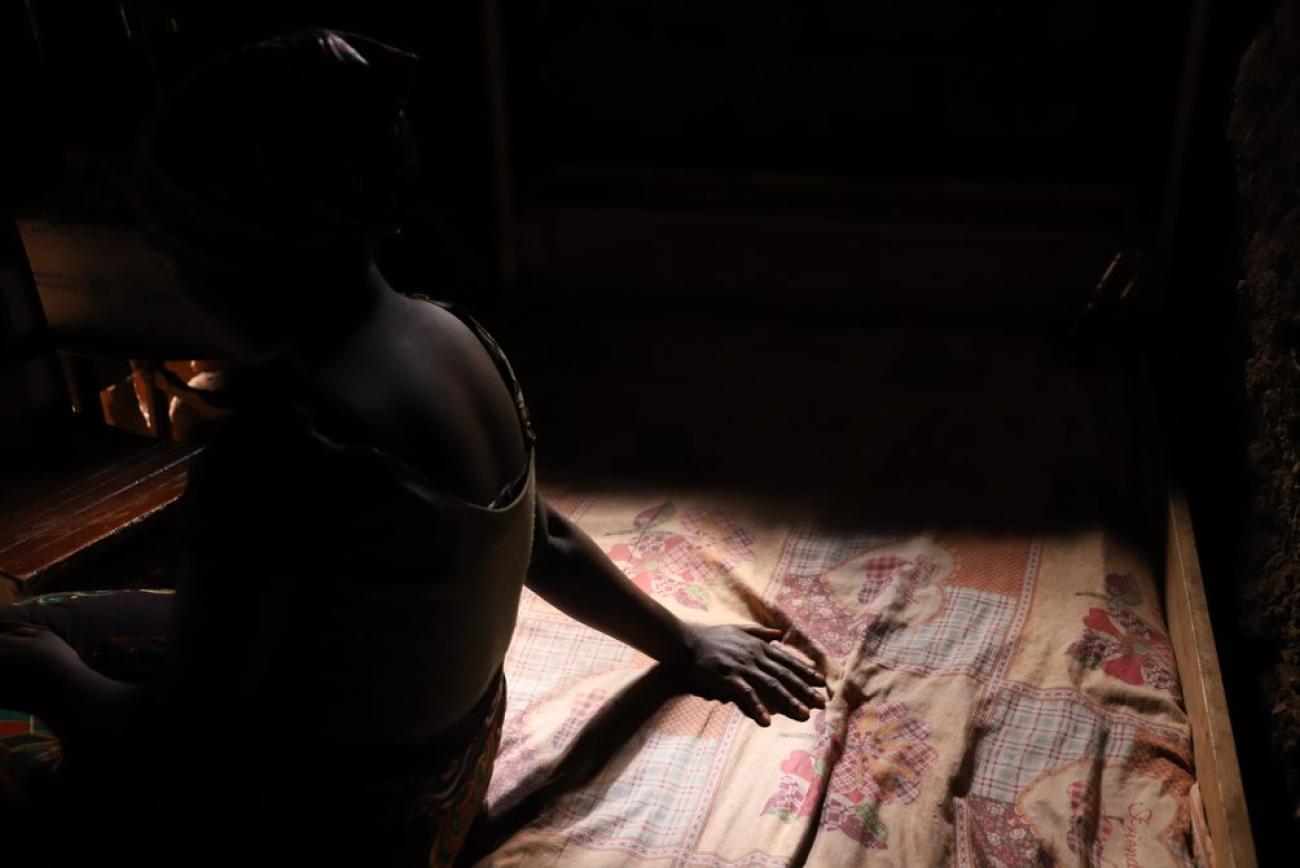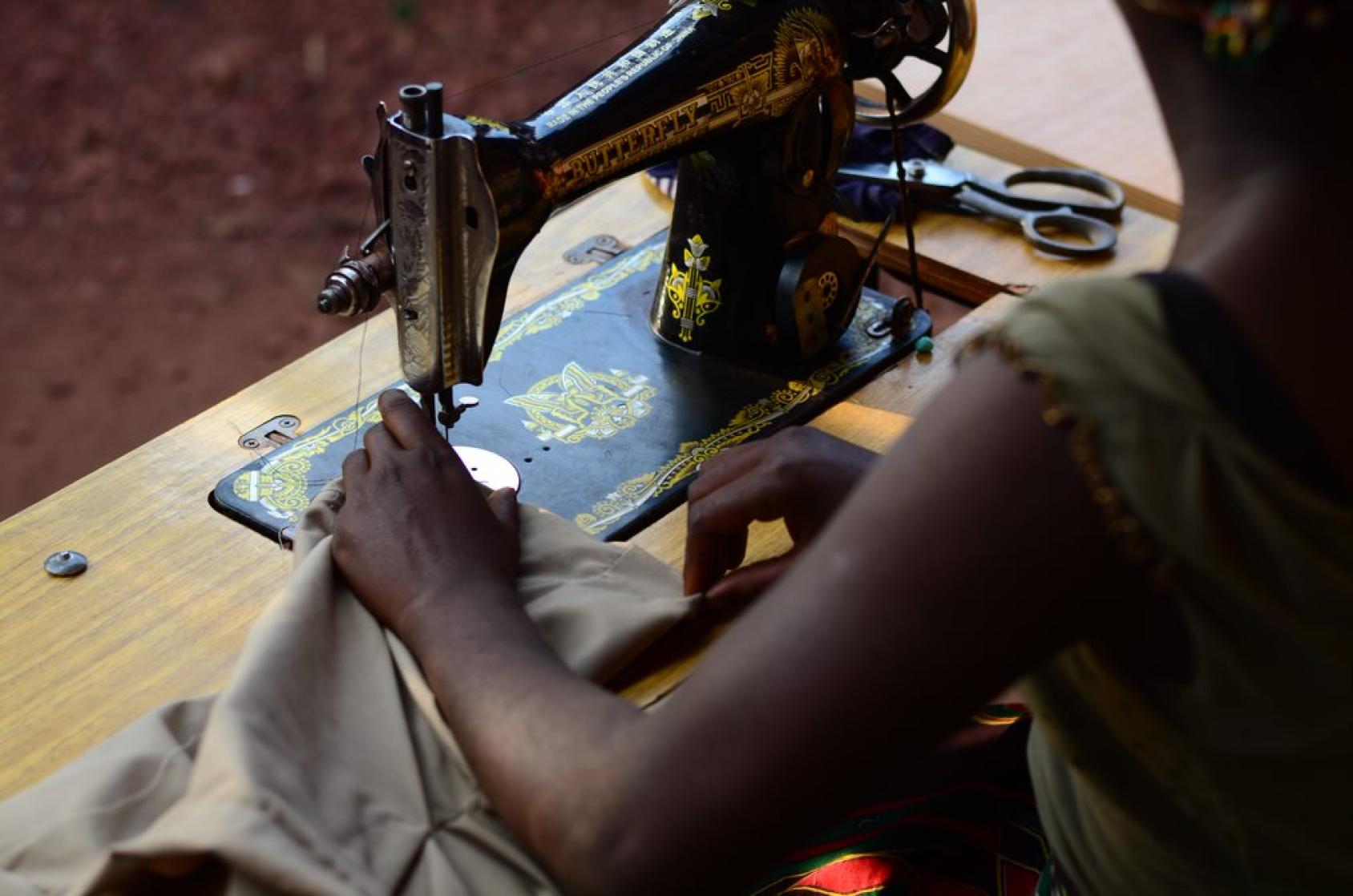I’m not old enough to be a woman: a Burundi child’s protest ignored


"After raping me, he told me that I was still a child, and he threw me outside. This is the first time I have told anyone because I was scared to say something before." And so, 12-year-old Elisabeth's childhood was forever changed.
It had never been a happy, care-free upbringing after her stepfather forced her to live with her grandparents.
"Life was difficult with my grandparents, there was no food to eat. I left to stay with a friend whose neighbours said there was a woman in the village offering to take her to Tanzania," says Elisabeth.
She knew she wouldn’t get a salary there, but it meant food on the table and a bed – for a while.
"The woman started to ask me to steal bananas from neighbours’ crops and threatened to kick me out if I refused. Another family in the village offered for me to go their friend’s house to work instead. They introduced me to a man that was to be my new husband. I refused and told them, 'I did not come here to marry'. They laughed and took me to a bar nearby.''
She went along but did not drink. "We came back at night, and they told me I could sleep in the man’s house next door. When I refused, they suggested one of their girls could accompany me, but it was a trap. The man asked the girl to get him a beer and instead she locked the door from the outside, leaving me alone with him.
'''Even if you refuse to marry me, I already paid your dowry in beers tonight', he told me.
'I’m not old enough to be a woman', I told him.''
She struggled and screamed but no one came. "They all could hear and knew what was happening. Eventually, he overpowered me. I was 11 or 12 years old at the time.''
Elisabeth went from house to house, staying with anyone who would take her in. "Some families offered me 30,000 Tanzanian shillings (USD 12,30) a month, but I never received it. Each time I asked for it they would reply 'later', 'another time' or 'how do you think we pay for your food and bed? That’s already money'.
Eventually neighbours called a Tanzanian organisation called Kiwohede, and the International Organization for Migration (IOM) in Burundi, which collaborates with the NGO to assist and reunite child victims of trafficking , stepped in. " Kiwohede took me into their shelter until IOM came and helped me to find my family and bring me home.''
Elisabeth's disturbing story is all too familiar in Burundi where over 1,000 victims of trafficking have been identified and assisted in Burundi since 2017, according to IOM.
Burundi is a source country for children subjected to forced labour and sex trafficking. According to the United States (US) Bureau of international labour affairs, children are trafficked to Tanzania for work in agriculture and gold mines or domestic work. Burundian girls are trafficked internationally for commercial sexual exploitation in Kenya, Rwanda, Uganda, the Democratic Republic of the Congo, and countries in the Middle East. In Burundi, trafficking in persons mostly involves forced labour, commonly for domestic work and childcare, along with agriculture, hospitality, construction, begging, and peddling.
From victim to survivor: the UN assistance

The centre which helped Elisabeth works to identify and shelter girls who have been trafficked in one of the 23 districts and seven regions which they cover. They work with local authorities to conduct door-to-door visits to scout for children who are being exploited and to raise awareness through local radio stations.
“People often call to alert us of children in exploitative situations,” say Tuyizere*, the centre's manager. The centre identifies child victims of trafficking , provides them temporary shelter, and it offers psychosocial counselling and life skills training. There are games, toys and an area to play group sports. Often these children are illiterate and are too old for primary school. Professionals teach life skills such as how to sew, to weave baskets, to cook or make soap, among other things. Elisabeth is being taught couture.
''I hope that I can be really good at it and become independent with this profession."
“The children also share their knowledge and talents with other children if they can,” adds Tuyizere.
In addition to IOM's work, the United Nations Children's Fund (UNICEF) - the leading United Nations actor on child protection- also contributes to the fight against trafficking in persons in Burundi, with an emphasis on child protection.
For UNICEF, trafficking is among the main violations of children's rights in Burundi. In response, UNICEF has established a child rights monitoring network of 220 sentinels trained in monitoring and reporting child rights violations in Burundi's 18 provinces. UNICEF-trained lawyers are deployed across the country to help trafficked and smuggled children seek justice and encourage prosecution of alleged perpetrators.
In total, more than 270 trafficked children aged between 8 and 17 have benefited from services provided by partners trained and funded by UNICEF over the past two years.
Burundi ramps up efforts to combat Trafficking in Persons
Direct assistance is only a fraction of the effort to combat human trafficking in the country. IOM Burundi is engaged in several initiatives to strengthen government capacity to combattrafficking in persons, thanks to generous support from the Kingdom of the Netherlands and the United States Agency for International Aid (USAID). These include hosting mass awareness activities throughout the country and training police, magistrates, and immigration officers on traficking in persons, Gender-based Violence and wider protection issues.
The Government of Burundi also plays a leading role in the fight against trafficking in persons. In a report released on 1 July, the US State Department of State has highlighted the progress made by Burundi on this matter.
It is now among the countries whose governments have made considerable efforts to meet the minimum standards for the elimination of trafficking in persons.
Despite gains, more needs to be done to enhance prevention, protection, and prosecution in the country. To that end, IOM and UNICEF are collaborating with the Government of Burundi to finalize standard operating procedures and develop a national referral mechanism to identify and refer victims to appropriate services – among other actions.
*Names have been changed to protect identities.
Article was adapted from an original story written by Lauriane Marie Wolfe, Media and Communications Officer for IOM Burundi. Composed and editorial support by Ahmed Ben Lassoued, Development Coordination Office.













